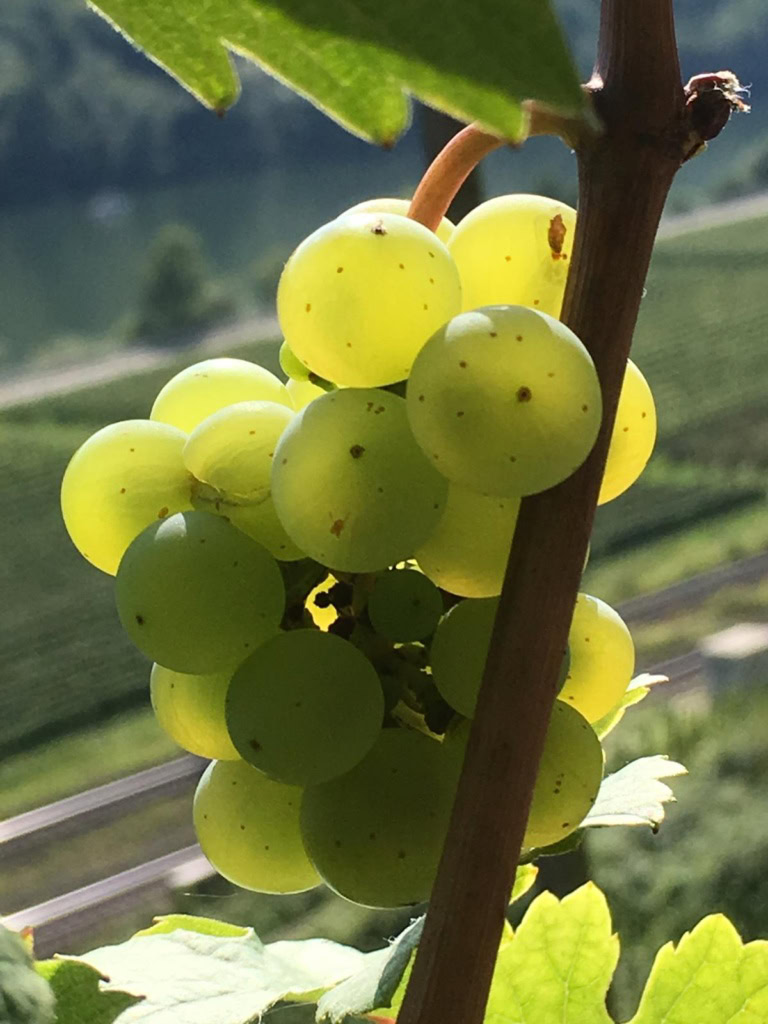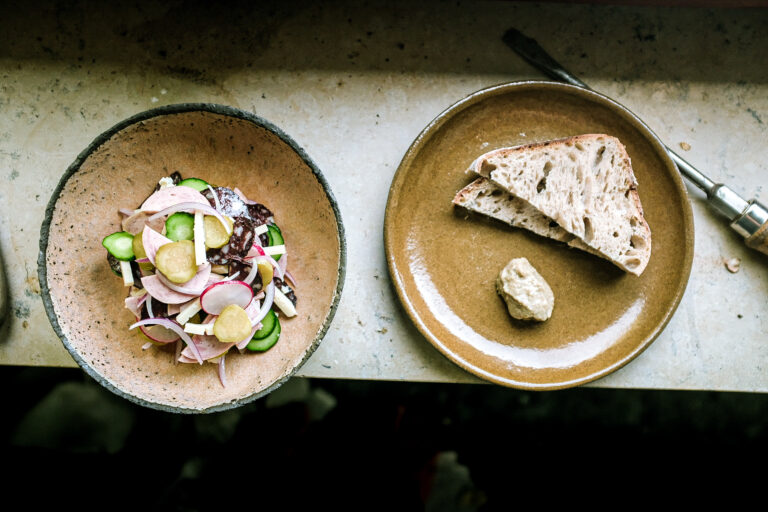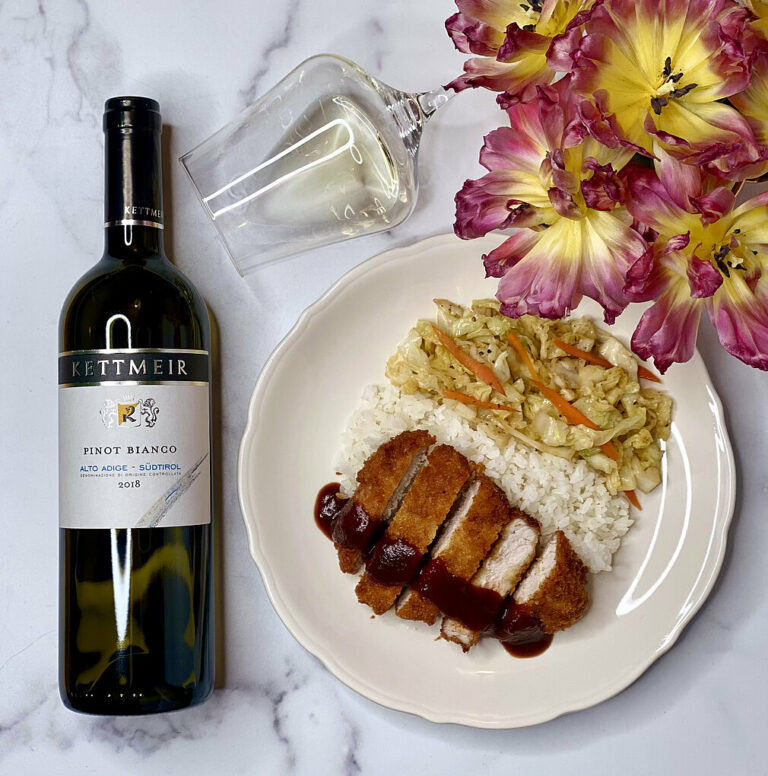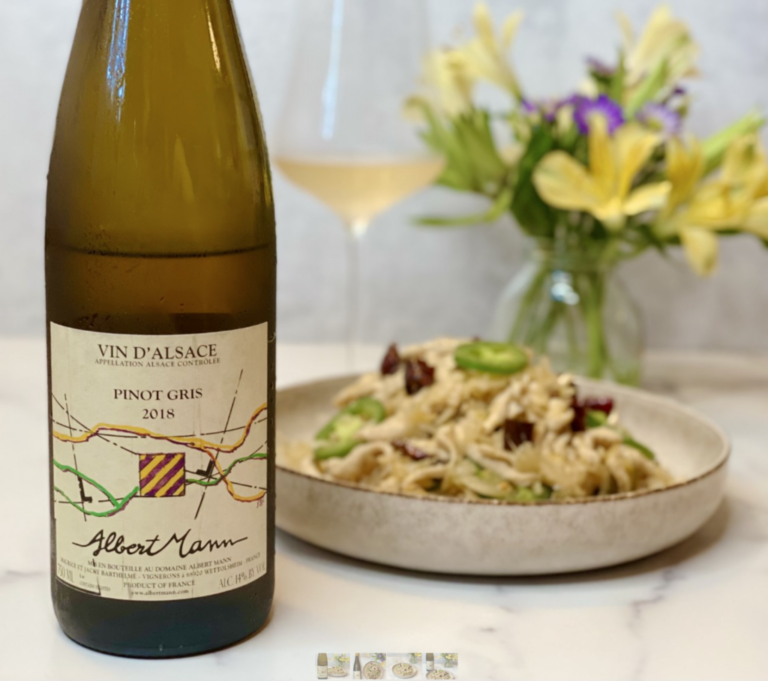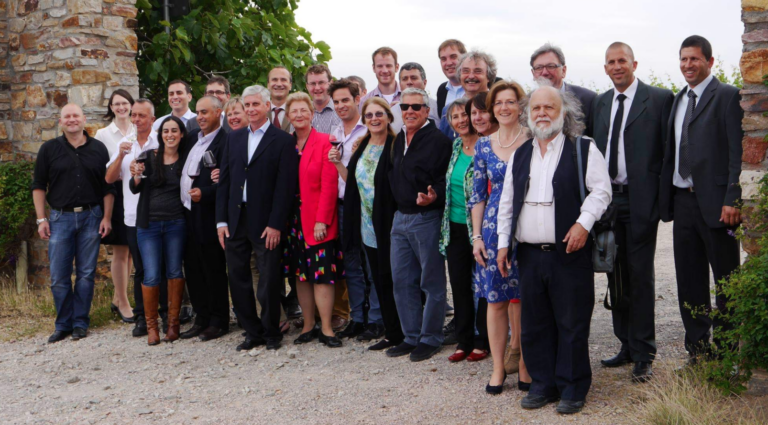EAT & TRINK | Pfalz Riesling and Taiwanese Beef Noodle Soup
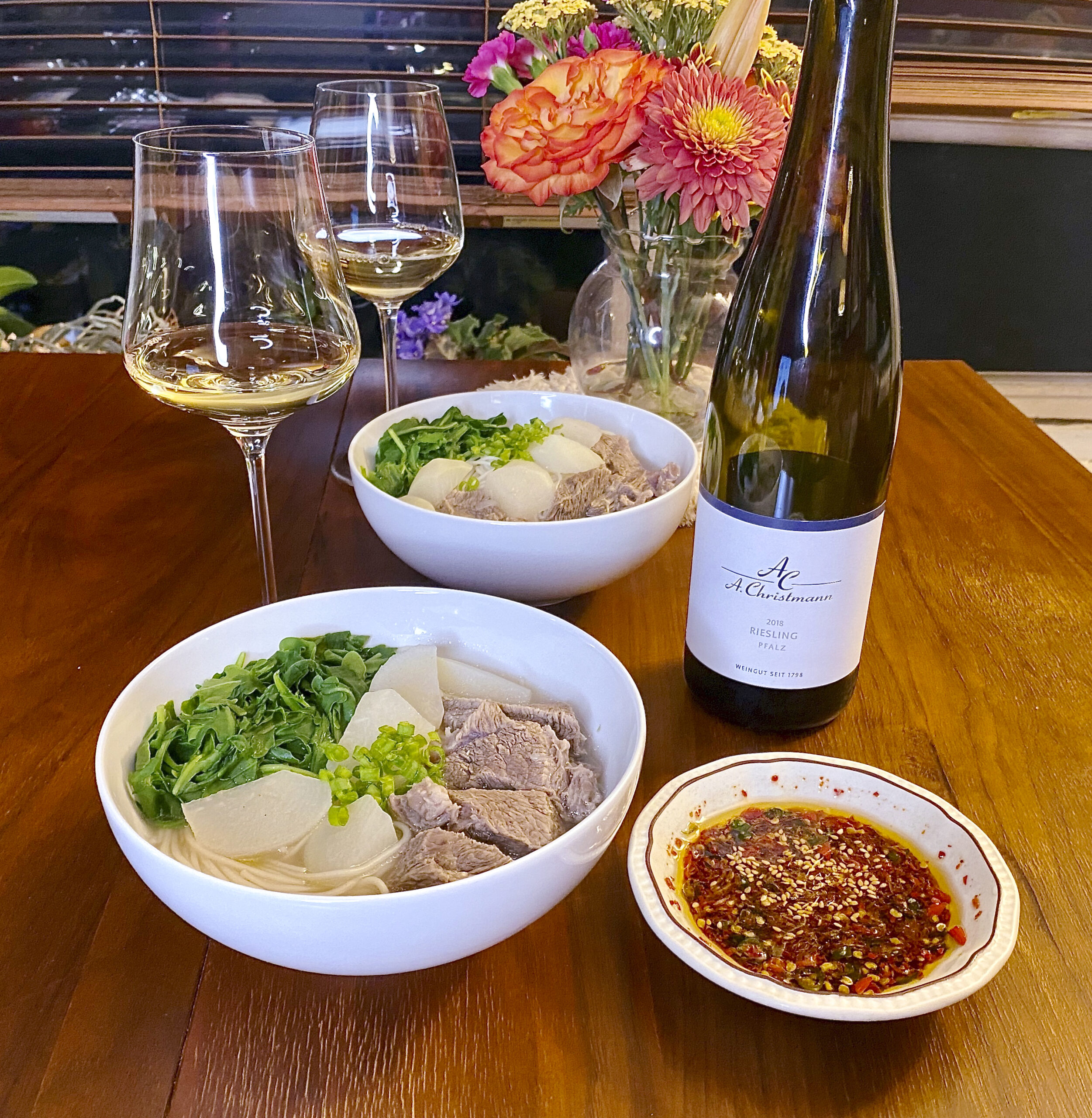
If you ask a person from Taiwan to choose the 10 dishes that best represent his or her cuisine, Taiwanese Beef Noodle Soup is inevitably on the list. More than a beloved national dish, the soup has become something of an obsession — like pizza to New Yorkers. Taiwanese Beef Noodle Soup was created by soldiers who retreated with the Nationalist government from mainland China to Taiwan in the 1950s. For political reasons, they were banned from returning to their hometowns. Missing both family and familiar cuisine, the soldiers used local ingredients to create a dish that evoked the flavors…

